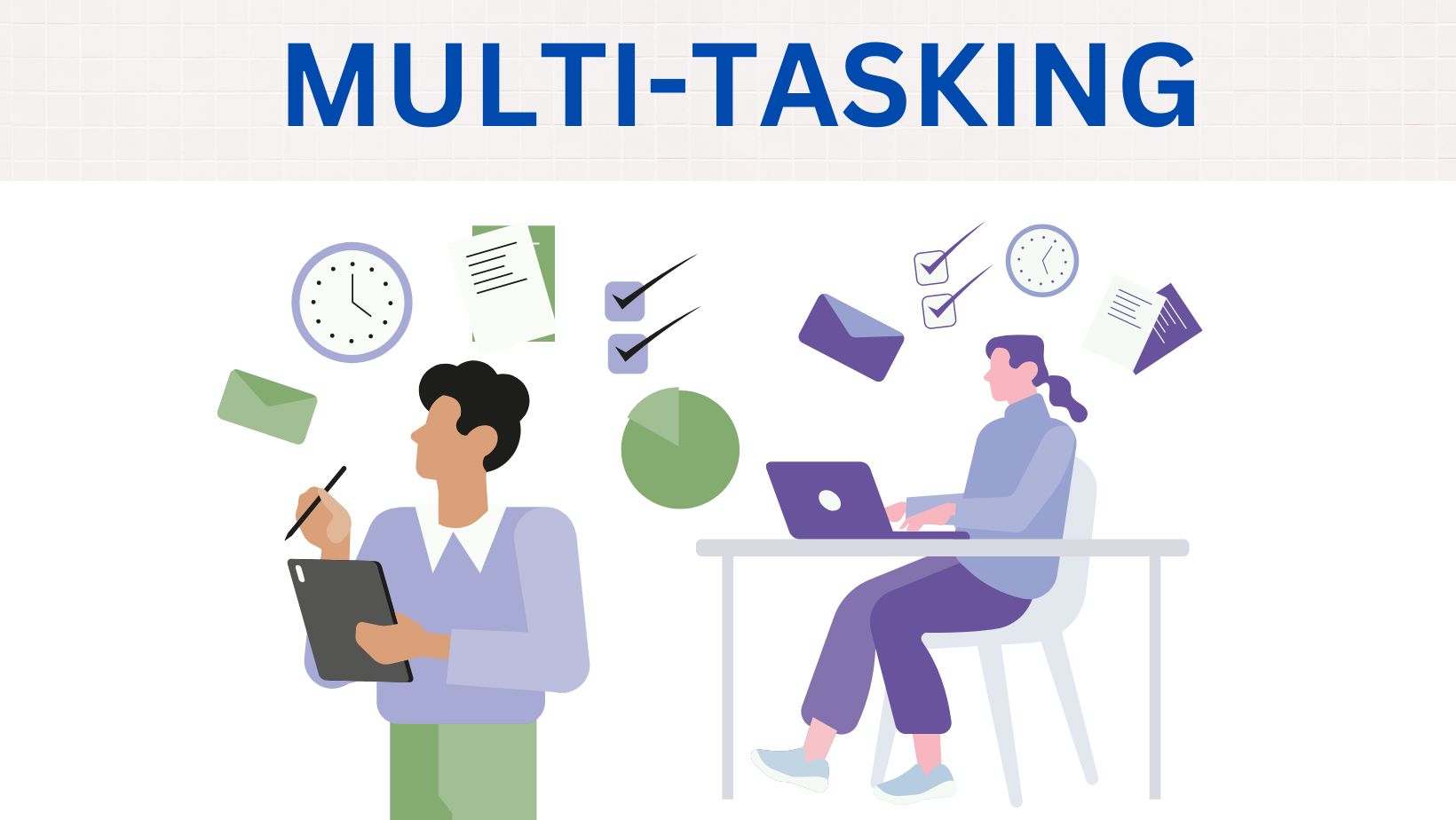Would you like to get more done in less time? Well, you may be inclined to think that you need to improve your multi-tasking skills. You don’t, in fact you shouldn’t even try to! Hundreds of studies have explored multi-tasking and the research consensus is that, despite popular opinion, human beings do not multi-task, we mono-task. Although some people can appear to be superhuman multi-taskers, they are not. Instead, the brain carries out tasks rapidly, jumping from one task to the next in succession, sometimes so fast (especially if one of the tasks has become habitual) that it can appear like multi-tasking. So, if you feel under pressure to do many things at once, to keep up with the society in which we live, for example, take the pressure off — it isn’t realistic and it won’t get you results! As the proverb says, “If you chase two rabbits, you will not catch either one.”
Keep it simple and consider the steps below. Research shows that when the brain is constantly switching back and forth between tasks, especially when those tasks require active attention, we become less efficient and more likely to mistakes that impede results. So, the key to getting results is to choose one task at a time (starting with the one that will have most impact), go all-in, and give it your full attention. Give it one hundred percent focus, and only when that task is done, should you move to the next and then commit to that all-in. Don’t switch or juggle other tasks at the same time. This means learning to stay present and being focused. You may need to practice this because humans have a tendency to get distracted, but if you want results, you need to give tasks your full attention in the present. Here are 5 things you can do easily, that with practice, will really enhance your ability to get tasks done.
Breathe!
For optimal performance and clarity, and to bring yourself fully into the present for task completion, intentionally breathe — slowly, fully, and with purpose, with particular focus on controlling your out-breath. This is known as diaphragmatic breathing and should be practiced every day. Many studies, including a 2017 study by Xiao Ma et al. illustrate that diaphragmatic breathing practices can “improve cognitive performance and reduce negative subjective and physiological consequences of stress.” Breathing properly makes you think more clearly, and with better thinking you are more efficient and effective!
*Note to club members: Practice the breathing exercises in the Self Discovery Video Library as they will help. (If you are not a club member yet, see MEMBERSHIP CLUB )
Become Mindful
Mindfulness has become a real buzzword in the last few years, but many people don’t even know what it is. Mindfulness is the basic human ability to be fully present, aware of where you are and what you’re doing, and not being overly reactive or overwhelmed by what’s going on around you. It is slowing things down and training your brain for present awareness and focus.
Connect with your body
Connecting with your body is an easy way to become present as you can physically feel it. Try this simple exercise to help you get your day off to a good start. Sitting or lying down, take a few slow deep breaths and notice the way your breath enters and exits your lungs. As you breathe, become aware of your toes and pay full attention to any sensations that you are experiencing. After a few moments, focus on your feet, then your ankles, then your calves, etc., working your way up to your head and out to the tips of your fingers, giving focus to each body part one at a time. This exercise only takes a few minutes and you will feel a great sense of calm as a result.
Be in Nature
Nature releases stress, as you connect to your surroundings and simply allow yourself to be. Being in nature can give you an immediate sense of being present and two thirds of people report that being in nature is their go-to when it comes to unwinding. It can calm your nervous system and give you mental clarity. Try to be in nature every day, even for a few minutes.
Practice Gratitude
Gratitude not only helps you feel good, it helps you feel grounded in the present moment, especially if you practice stop-based gratitude. Stop-based gratitude is where you intentionally have pause moments in your day to consciously be grateful. An example of this is when people stop to pray and give thanks before a meal. Another example is writing in a gratitude journal as a daily routine. When you pause for gratitude intentionally and routinely, your mind searches for the positive and this can bring comfort, calmness and clarity.
Practice the above daily and you will see an improvement in your ability to focus and simplify. For additional help and support, you are welcome to become a member of my club, if you aren’t already. It will provide you with support, encouragement, accountability and growth. See MEMBERSHIP CLUB
To your happiness and success.
Live fully!
Donna

